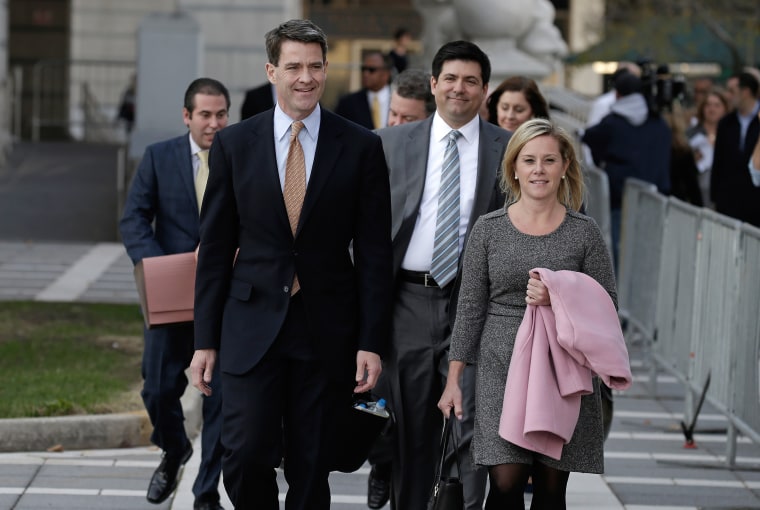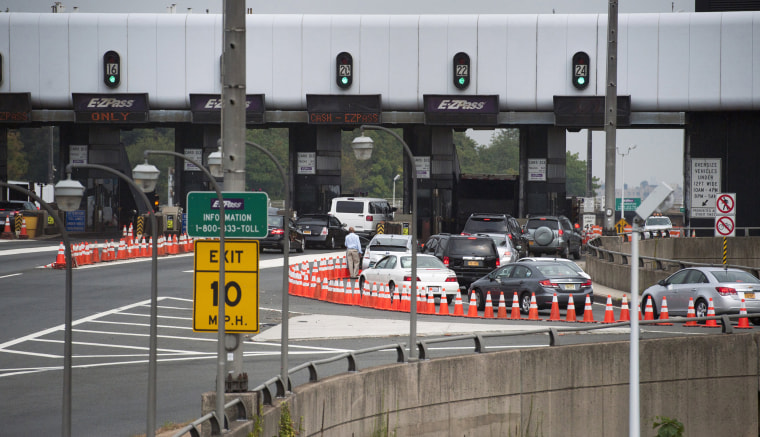WASHINGTON — The saga known as Bridgegate created monumental traffic jams in 2013 on the George Washington Bridge — the nation's busiest — and tarnished the image of New Jersey's Republican governor at the time, Chris Christie. On Tuesday, the Supreme Court will decide whether the two state officials behind the scandal should go to prison.
Their attorneys say that if the court upholds the convictions for lying about why they shut down two lanes on the bridge, "it would transform the judiciary into a Ministry of Truth for every public official in the nation."
A federal jury convicted Bridget Anne Kelly, who was Christie's deputy chief of staff, and Bill Baroni, who was the deputy executive director of the Port Authority of New York and New Jersey, which controls the bridge. The jury found that they shut down two of the three bridge lanes coming out of Fort Lee, New Jersey, to punish its mayor for refusing to endorse Christie's re-election.
Prosecutors said the two committed fraud under federal law in lying about their reason for closing the bridge by claiming that they were conducting a traffic study, which allowed them to hijack Port Authority resources. "A public official commits fraud when he lies to divert agency resources that he could not otherwise control," the Department of Justice said in its Supreme Court brief.
What makes the case controversial is that fraud cases typically accuse public officials of diverting public resources to line their own pockets, and there's no such claim in this case. That doesn't matter, prosecutors said, because the state's property was misused, specifically payments to workers who would not otherwise be on duty and wages paid to salaried employees who were roped into the scheme.
Download the NBC News app for breaking news and politics
But the defense attorneys said that if the Supreme Court upholds the convictions, it would open the door to charging any public official with fraud by asserting that he or she lied in claiming to have acted in the public interest. That might include a city official who orders potholes repaired to reward the mayor's political base while justifying it on policy grounds.
Such a reading of the law "would readily enable partisans not just to harangue and harass political opponents — but to prosecute and jail them," the lawyers said.

The Supreme Court's announcement in July that it would hear the case signaled that at least some justices believe the government overreached in bringing the fraud charges. If the court throws out the convictions, it could further weaken the ability to prosecute public officials for fraud.
Both former officials were sentenced to prison. Kelly has been allowed to remain free while the case is on appeal. Baroni began serving his sentence in April but was released on bond when the Supreme Court agreed to hear the case.
A decision will be announced by late June.

